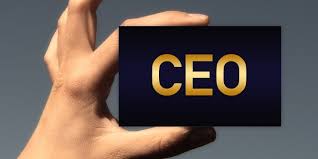THE TEETHING TROUBLES
OF A FIRST- TIME CEO
Roles of CEOs are becoming a vast
and critical subject in the realm of management with lots of potential for
further research due to severe global competitions, unwieldy growth and interdependency,
greater awareness and expectations on the parts of customers and stake holders
(including share holders) and much sharper public eye of surveillance over the
corporations. Accelerated rate of change and its enormity
compel CEOs not to make mistakes on one hand and on the other, become
more effective and more precise.
The CEO is becoming more and more accountable
not only for the short term impact he creates but also for the long term
implications even after he has long gone. A good CEO should be able to shape up
the future of the company. He is supposed to provide a body and character to
the organization he leads and help sustain them in great shape and spirit. A CEO
has to give directions to all the organizational actions and be responsible for
the overall results. He has to set a tone to build up an ethically and legally
sound organization and oversee that it remains so all the time. Wrong decisions
and actions of CEOs can harm a large body of humanity these days, in
several countries, at the same time (example: the recession of 2008-2010).
Putting it all together, CEO should provide
the right kind of leadership to lead the organization strategically,
commercially, morally and people-wise and bring about the right balance among
all of them. There are tomes of
research and analysis on the Qualities and Competencies to Become Successful
CEO. While most appear to be moralizing and motherhood statements we have found
value in them to groom young scions and
fast track managers to be spotted for higher responsibility live SBU Heads. A
trend in leading companies is to have a talent pipeline The best advice we have
received is from Mr A M Naik the
Chairman of Larsen and Toubro; one of India’s best managed and successful
conglomerate.
“Start
thinking and behaving like a CEO at whatever level you are at present. Everyone
is really a CEO of his own job.
If he starts handling his job the way a CEO
handles the corporation,
he
shows a definite potential of a future CEO of a company.”
I summarize below a few distilled thoughts to
be a checklist for you:
·
CEO should have the competency of looking at
the “whole”: outside of the company and inside of the company. He should be
able to assimilate and link together the entire factors of business: people,
economy, governments, markets, customers, employees, technology, business
associates and the lot. CEO’s assumptions or paradigms about each of these
factors should be correct; otherwise there would surely be problem(s) for the
company in the future.
·
CEO should have a great vision. He should be
able to foresee what is good for the organization and what is not and organize
the necessary decisions and actions. He should be able to ask questions like
what the company’s business should be and what it should not be and then,
should be able to find the right answers.
·
CEO has to be very courageous. Having
envisioned the changes needed, he should have sufficient guts to lead those
changes.
·
CEO cannot just have only result orientation.
Equally important is his process orientation. The two together set tone for
long term as well as short term successes.
·
CEO should be able to communicate with all
sorts of people everywhere, effectively. It includes his convincing and
influencing abilities. It includes his keen listening abilities and
interpersonal relations. It includes his consensus and team building skills.
With best wishes
Dr Wilfred Monteiro







